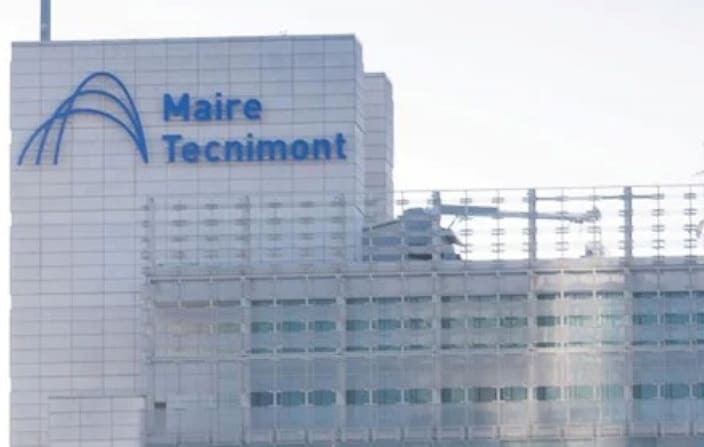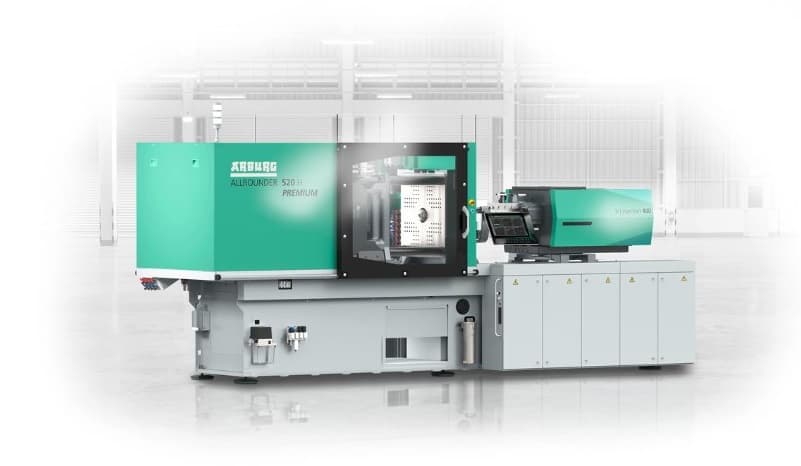PCR Plastics – Eastman is set to revolutionize plastic recycling by building the world’s largest molecular recycling plant in Port-Jérôme-sur-Seine, Normandy, France 02-08-2024
PCR Plastics
Crude Oil Prices Trend

Crude Oil Prices Trend by Polyestertime
Embracing technology can address feedstock issue
To address recycled feedstock supply challenges, robotics and AI company EverestLabs says there’s a need to pivot to new technologies.
Sam Kratky, an account executive at the Bay Area, California-based company, said in a July 30 webinar that “this problem of feedstock shortage that we are facing is not going away – and in fact it’s growing.” PCR Plastics
“The nuances in which material to recover and how to recycle them is only going to get more complicated as packaging design and recycling collection evolves and we’re really going to need to rely on new technology rather than manual processes to solve this,” she added.
The webinar, “How to Leverage AI for Feedstock Management,” also featured Samir Kamat, an EverestLabs lead solutions engineer. He noted that demand growth for RPET is far outpacing supply growth. PCR Plastics
A 2023 McKinsey and Company report found that between 2012 and 2022, RPET supply grew about 1% per year, while demand increased 4% each year.
AI and robotics can help with many of the current pain points, he said: the inaccuracy and expense of post-collection sorting, manual labor shortages and high levels of machine downtime due to failure or contamination.
Using AI and robotics can “ideally recover all the lost material from the MRFs and provide high quality feedstock to the reclaimers,” Kamat said, which would “result in a future where the cost of recycled PET would be equal to that of virgin material.”
Kratky added that the technology has also been improving. EverestLabs offers remote monitoring, so “you don’t need to babysit your robots.” PCR Plastics

IKV launches project to improve LDPE recyclate qualities from household PCR
Key Highlights:
- The Institute for Plastics Processing (IKV) in Industry and Craft at RWTH Aachen University (IKV) has initiated the industrial research project “LOOPCYCLING.”
- The project involves the entire plastics recycling value chain in order to push the boundaries of mechanical recycling and achieve the best possible recyclate qualities using established industrial processes. PCR Plastics
- LOOPCYCLING considers the entire process chain of mechanical recycling as well as the characterisation of recyclates, reprocessing and reuse.
The EU Packaging and Packaging Waste Regulation (PPWR) adopted by the EU Parliament in April 2024 sets, among other things, ambitious minimum targets for the percentage of recyclate in new plastic packaging, raising new challenges for industrial recycling technologies. PCR Plastics
In order to meet the requirements, a significant increase of the percentage of recyclate in contact-sensitive applications like food and cosmetics packaging is mandatory. Chemical recycling processes provide recyclates that meet the quality requirements of such applications. However, the available capacities are far from sufficient to meet the demand. On the other hand, mechanical recycling, as the most energy and material-efficient plastics recycling process, can provide corresponding quantities, but not in the required recyclate quality. Intensive research into both recycling routes will therefore be crucial for the industry. PCR Plastics
The Institute for Plastics Processing (IKV) in Industry and Craft at RWTH Aachen University has therefore initiated the industrial research project “LOOPCYCLING – Advanced mechanical recycling of flexible polyethylenes”.

Samsara Eco: Innovating Sustainable Packaging Solutions
Samsara Eco is at the forefront of replacing plastic packaging with fossil fuel-free alternatives. The company develops and sells innovative polymer resins that can be integrated into supply chains, offering sustainable options for packaging and textiles.
Founded in 2020 in collaboration with the Australian National University, Woolworths, and Main Sequence Ventures, Samsara Eco has made significant strides in plastic recycling technology. The company focuses on scaling its enzyme library to recycle various plastics, including the challenging nylon 6,6, polyester, and nylon 6. PCR Plastics
Recently, Samsara Eco secured $65 million in equity funding, co-led by Temasek and Main Sequence, bringing its total funding to $105 million. This investment will support the construction of new facilities in Jerrabomberra, New South Wales, and expansion into North America and Southeast Asia.
Samsara Eco’s patented EosEco technology is a game-changer, reducing recycling time and operating at lower temperatures and pressures, significantly cutting energy use and carbon emissions. The company has partnered with global brands like Lululemon, launching products made from enzymatically recycled polyester, showcasing the potential for sustainable fashion. PCR Plastics
With a team of 60 staff across Australia and North America, Samsara Eco plans to expand to 90 employees by 2025. The startup aims to recycle 1.5 million tonnes of plastic annually by 2030, significantly reducing the carbon footprint and preventing plastics from ending up in landfills.
Samsara Eco is seeing strong demand from the apparel and consumer packaged goods industries and plans to enter the automotive and electronics sectors next, paving the way for broader commercialization on a global scale. PCR Plastics

KT (MAIRE) completes the acquisition of engineering company APS Evolution, increasing its operational capacity and enhancing its footprint in Italy and Eastern Europe
- APS Evolution is the parent company of two engineering firms with a solid international reputation in the execution of projects for the conversion of natural resources and in green chemistry
- Thanks to this acquisition, MAIRE will leverage on an additional workforce of about 290 professionals to expand its project management and engineering capacity in the process, automation, mechanical, piping, electrical and civil fields PCR Plastics
Further to the announcement made on 22 May 2024, MAIRE (MAIRE.MI) informs that KT – Kinetics Technology (Integrated E&C Solutions) has finalized the acquisition of the entire share capital of APS Evolution S.r.l.
APS Evolution S.r.l. is the parent company of Italy-based APS Designing Energy S.r.l. and Poland-based KTI Poland S.A., two engineering firms which boast a solid international reputation in the execution of projects for the conversion of natural resources (downstream petrochemical segment), with a specific focus on innovative rubbers, as well as in green chemistry, such as biofuels and bioplastics. PCR Plastics
As of 30 June 2024, the companies generated total revenues of €61.7 million and backlog was €137.3 million.
This acquisition will enable MAIRE to expand its engineering capacity by adding a multidisciplinary team of around 290 experts in different fields, such as process, automation, mechanical, piping, electrical, and civil engineering. PCR Plastics

Arburg will showcase 18 machines at Fakuma, the German moulding fair from October 15-19 in Friedrichshafen
Eleven machines will be at Arburg’s stand in Hall A3, with seven more hosted by partners. The stand will emphasize digitalization, featuring the interactive arburgSOLUTIONworld area with a “transparent press” and six expert-manned stations.
The Allrounder 270 A will be displayed, allowing visitors to see its electric drives and telematics system. PCR Plastics
New features include the Allrounder 720 E Golden Electric, a thinner and more economical version, debuting in Germany after its NPE launch. Other exhibits will focus on multi-component injection molding, recycled materials, transparent copolyesters, and liquid silicone. The Allrounder 570 H hybrid press will demonstrate fast molding of medical components, specifically 64 syringe plungers.
A notable innovation is the injection molding of fibrous material (additivated paper fiber), developed with Model and Biofibre. The Allrounder 370 A will use “paper pearls” to create furniture connectors. The aXw Control RecyclatePilot package will ensure injection weight stability. PCR Plastics
Additionally, the two-component molding of PBT and liquid silicone rubber (LSR) will be showcased on an Allrounder More 2000 press, operated by a six-axis Yaskawa robot, producing ready-to-use spatulas.

Eastman is set to revolutionize plastic recycling by building the world’s largest molecular recycling plant in Port-Jérôme-sur-Seine, Normandy, France
This facility will utilize Eastman’s advanced molecular recycling technology to process up to 110,000 metric tons of polyester-rich plastic waste annually, which currently lacks recycling options. PCR Plastics
The targeted plastic waste includes items like colored polyethylene terephthalate (PET) found in food packaging, reusable water bottles, and clothing that cannot be recycled mechanically. Traditional recycling methods fail to handle these materials, leading to their disposal in landfills, incinerators, or the environment.
The new facility will break down these hard-to-recycle plastics into basic components, enabling the creation of high-quality plastic that can be reused repeatedly, thus preventing pollution. Additionally, this molecular recycling process is expected to reduce costs for end products, making sustainable choices more affordable for consumers. PCR Plastics
By combining Eastman’s proven processes with renewable energy resources in Normandy, the facility aims to cut greenhouse gas emissions by up to 80% compared to traditional virgin PET plastic production methods. Eastman and the French government are collaborating to achieve a circular economy, transforming previously hard-to-recycle plastic waste into valuable resources. PCR Plastics
The plant in Port-Jérôme-sur-Seine is projected to be operational by 2027/2028, marking a significant step towards sustainable plastic management and environmental conservation.

Nonwoven – Reduced Stack Height of PET-Series Hot Runner System 01-08-2024
PCR Plastics
